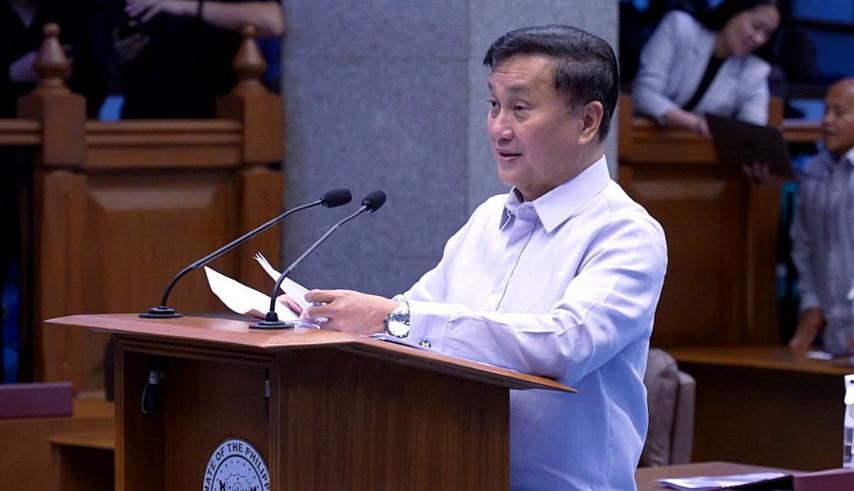Senate bill seeks to penalize foreign interference in the Philippines
By Dhel Nazario
Senate Majority Leader Francis Tolentino has filed a bill penalizing foreign interference in the Philippines amid recent incidents indicating possible espionage in the country.

Tolentino's Senate Bill 2951 aims to update the outdated legal framework regulating the conduct of foreign agents in the Philippines, which dates back to 1979.
"The increasing concern of the government regarding potential foreign interference in the Philippines' political and governmental affairs has prompted a deeper examination of the tactics and objectives employed by some wicked state actors. These actors have been infiltrating key areas of the bureaucracy, media and critical infrastructures, thereby threatening the nation's national security, political stability, and sovereignty," he said in his bill.
"Overall, the proposed legislation underscores that even the planning of foreign interference can incur penalties, thereby reinforcing the government's commitment to protecting democratic processes from external influence," he added.
He said the bill aims to penalize "the various methods through which foreign agents and entities may interfere in the Philippine political and governmental processes."
Also, the bill has an expanded scope that covers harmful electronic communications, while requiring internet service providers (ISPs) to block access to electronic communications "prejudicial to national security and public safety."
Under the proposed measure, a Counter Foreign Interference Council (CFIC) shall be created chaired by the Executive Secretary. The CFIC's members include the National Security Adviser as vice chairperson; and the secretaries of Justice, Foreign Affairs, Interior, National Defense, Information and Communications Technology, and Anti-Money Laundering Council Secretariat. The National Intelligence Coordinating Agency shall be the CFIC's secretariat.
As part of its mandate, the CFIC may issue an Access Blocking Order directing the ISP to "take reasonable steps" to block Philippine-based users' access to an online publication whose content may prejudice national or public security, undermine public confidence in authorities - or influence the outcome of elections.
An ISP that does not comply with an access blocking order shall be fined P1 million for each day it does not fully comply. The maximum penalty for this is P500 million.
Meanwhile, any person found guilty of foreign interference - including those involving foreign intelligence agencies and electronic communications - and conspiracy to commit foreign interference, faces life imprisonment and a fine of P5 to P10 million.
Any person found guilty of aiding or protecting persons committing foreign interference may face 12 years imprisonment and a fine of P2 to 5 million.
If the offender is a government official or employee, he/she shall face the maximum penalties and be barred from holding any public office or employment. If the offender is an alien, he/she shall face the penalties and be deported after serving such penalties - and will not be allowed reentry into the Philippines.
The bill allows the surveillance of suspects and interception and recording of communications secretly, upon the written order of the regional trial court.
Moreover, special courts - the Counter Foreign Interference Courts - shall be created to conduct the trial of persons charged under this act.
Finally, the acts under this bill will be considered an unlawful activity thereby giving the AMLC the authority to conduct financial investigation, freezing of accounts, and forfeiture of assets.